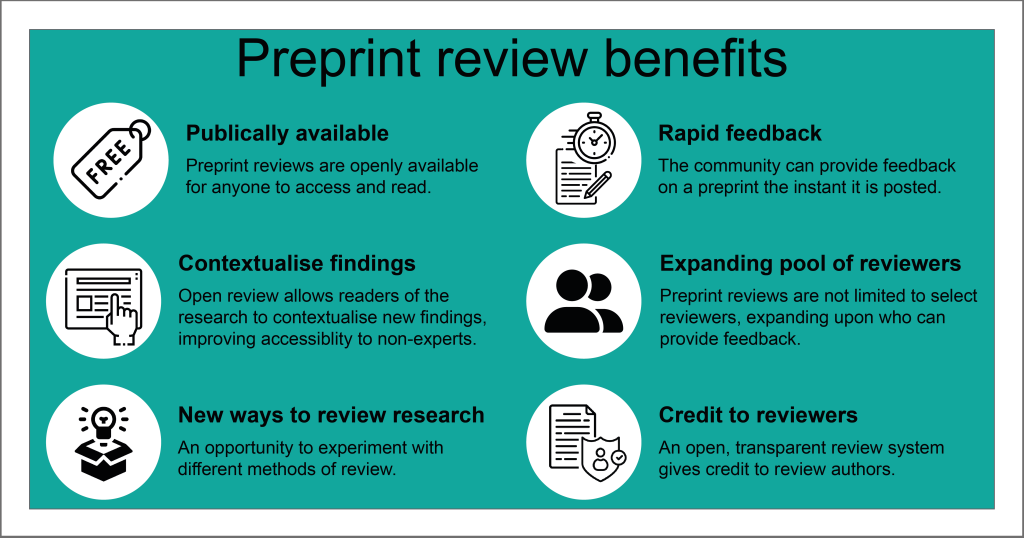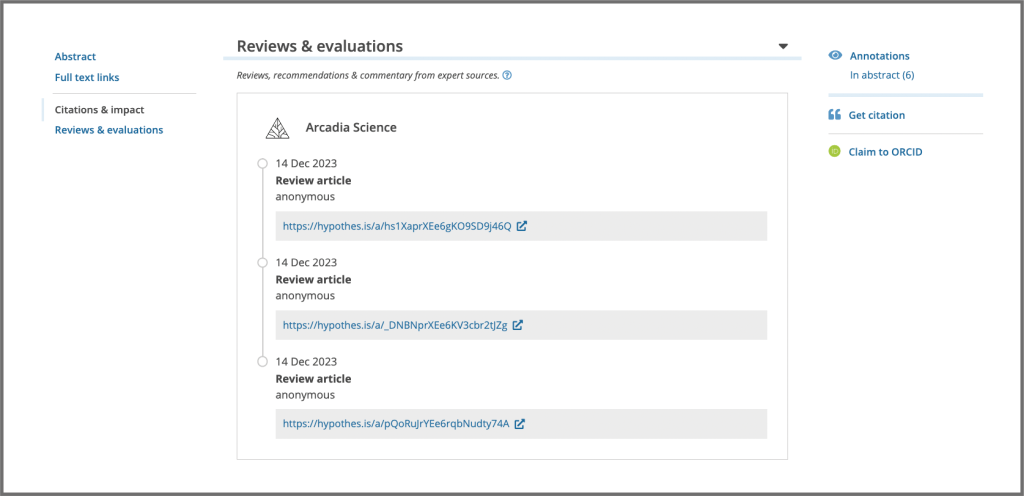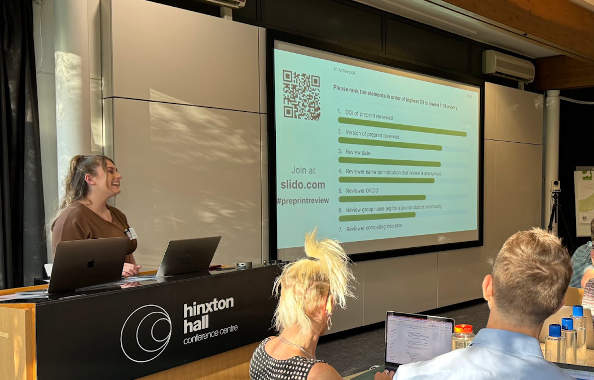Quantile Beta Regression The quantile beta regression model discussed in the 2021 paper by Running Code When you click the Render button a document will be generated that includes both content and the output of embedded code.
Messaggi di Rogue Scholar

Preprinting has soared in popularity in the life sciences and is increasingly recognised as an excellent method to share research outputs quickly and freely. While preprints have gained popularity, an important consideration is ensuring their scientific quality. This prompted the development of platforms where researchers can comment on, evaluate, and review preprints.

As 2024 begins we reflect on the achievements our team made in 2023 to meet your needs as users. The team’s efforts were concentrated on building trust in preprints, open sourcing code, as well as expanding and improving text-mining capabilities. Preprint highlights

The practice of preprinting in the life sciences has grown rapidly. In addition to accelerating scientific publication, preprinting also has the potential to open new avenues of communication among researchers. For example, preprint peer review offers tremendous potential for changing the culture of scientific assessment, broadening participation, and enhancing the robustness of scholarship.

Along with life science publications, Europe PMC offers a way to search through biomedical grants from Europe PMC funders using the Grant Finder tool. Last year, Europe PMC partnered with the Medical Research Council (MRC), the UK Collaborative on Development Research (UKCDR) and the Global Research Collaboration for Infectious Disease Preparedness (GLoPID-R), to extend its search to include COVID-19 grant data from other funding organisations.
In July 2020, Europe PMC began indexing the full text of COVID-19 preprints. The initiative supported by Wellcome, the UK Medical Research Council, and Swiss National Science Foundation, has now made over 15,300 full text COVID-19 preprints searchable and free to read, alongside peer reviewed articles. Number of full text COVID-19 preprints in Europe PMC by month.
Europe PMC infrastructure grant renewal We start 2021 with the exciting news that the Europe PMC infrastructure grant has been renewed for the period April 2021 to March 2026.
The year 2020 was marked by the global COVID-19 pandemic and the Europe PMC team, like many others around the world, started to work from home.
[More than 4,500 Research Square preprints discoverable alongside peer-reviewed research]{face=“"Open Sans", sans-serif” style=“font-size: 11pt; font-style: italic; white-space: pre-wrap;”} [Research Square’s collection of more than 4,500 full-text COVID-19 preprints have been indexed in Europe PMC, an open-access repository of more than 1 million biomedical research works.]{face=“"Open Sans", sans-serif” style=“font-size: 11pt;
We are excited to announce the recent release of metagenomics annotations for Europe PMC publications. Thanks to the machine learning framework of Dr. Maaly Nassar for the joint EMERALD project between Europe PMC and MGnify teams, recognising metagenomics key terms in literature can now provide detailed biome descriptions for unravelling microbial implications in a variety of environmental-, engineered- and host-associated phenomena.